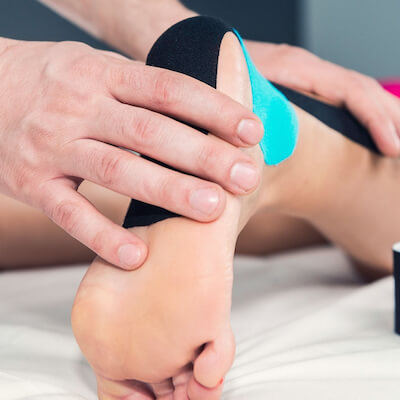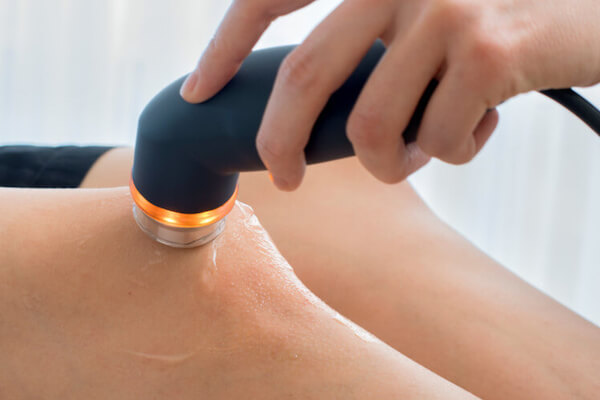PHYSIOTHERAPY
"Physical therapists are not personal trainers, we are neuromuscular experts."
What is Physiotherapy?
Physiotherapy uses movement, exercises and other modalities such as laser therapy and ultrasound to treat and rehabilitate injuries, diseases and disorders. The goal is to restore, maintain, and optimize a patient’s function, mobility, and to prevent future injuries. Physiotherapists are important players in health promotion and disease prevention.Physiotherapists can assess and treat disease conditions, and injuries.
How Can You Benefit from Physiotherapy?
Physiotherapy is proven to be effective in the assessment, diagnosis, treatment and management of acute and chronic conditions. It prevents injury and disability, promotes optimal mobility and physical activity. Physiotherapy helps to restore physical function and mobility and works with functional movement to help you improve your overall health and wellness.Physiotherapy can help a wide range of physical ailments, from neurological, cardiorespiratory, to musculoskeletal issues, such as, but not limited to the following:
- Back Pain
- Sports Injuries
- Sprains and Strains
- Pelvic Health (i.e. pregnancy related, incontinence)
- Neurological conditions (i.e. stroke, traumatic brain injuries, Parkinson’s, spinal cord injuries)
- Fractures
- Osteoporosis
- Post-Surgery rehabilitation such as hip or knee replacement
- Asthma
- Chronic Obstructive Pulmonary Disease
- Cardiovascular diseases
- Fall Prevention
- Concussion Management
- Vestibular Rehabilitation
- Arthritis
- Amputation Rehabilitation
- Pediatric Therapy
Why Choose Our Physiotherapists?
They do a full assessment to make sure that we have a clear understanding of your are of concern before prescribing any exercises and treatments. This way, they are confident that your treatments are the best for your needs.
All of our physiotherapists participate in monthly training clinic rounds where their technical skills and knowledge stay up to date in the latest rehab care.
You can count on our physiotherapists to always have your best interest at heart. Your goals are our goals. We work with you to achieve your goals as fast as possible!
What to Expect for Your Initial Physiotherapy Appointment?
Assessment
For your initial appointment at Nexus Massage and Rehab, your physiotherapist will undergo a full assessment, which includes a physical exam, and evaluation of your health to ensure a complete understanding of your condition. Your initial appointment will start with some questions to understand you better. Some of these questions asked may be related to the following:
|
Once your health history consultation is complete, to further understand your chief complaint, your physiotherapist will proceed to initiate the physical examination with your consent. Please wear loose fitted clothes to your physiotherapy appointment as this allows maximum movement in your assessments during your physical examination.
During your physical examination, your physiotherapist may perform the following tests:
|
After your health history and physical examination, your physiotherapist will have a clinical impression on what is causing your chief complaint and explain their findings to you. Your physiotherapist will then create a treatment plan and short and long term goals that are specific to your needs.

What types of Physiotherapy treatments do we offer?
Exercise Prescription
Exercise therapy has been scientifically proven to be an effective way to prevent pain and injury. Exercise prescription is vital to the improvement and functioning of your target area during rehabilitation.
A personalized exercise program is created by your physiotherapist based on your goals, to increase function, strength and range of motion. Exercise therapy is a plan that consists of activities or exercises, specially designed to reach your health goals. Exercise therapy creates muscle memory, which assists in improving motor and sensory function, increasing independence and reducing the risk of injury.
Your physiotherapist will provide you with exercises that you can do at home to help decrease pain and rehabilitate your area of concern.

Soft Tissue
Physiotherapists not only prescribe exercises during treatment, they also provide hands-on treatment through manual manipulation of your muscles and tissues to help increase blood circulation, decrease tension and increase range of motion. Through massage, your physiotherapist can promote faster healing and recovery.
Some techniques used by your physiotherapist may include:
|

Joint Mobilizations
Joint mobilization is a form of manual therapy used by physiotherapists to improve mobility, increase range of motion and decrease overall pain. Following injury and immobilization, soft tissues may become shortened and limit overall movement and restrict joint functionality. By performing joint mobilization, which is a low-grade, passive movement of a skeletal joint, it helps restore and improve functionality in that joint.
Joint mobilization is not a painful technique, it is a gentle, small movement within the joint capsule. By performing these passive movements within the joint, this produces more synovial fluid (fluid within the joint) which helps lubricate and bring in nutrients in the area to enable faster healing.

Medical / Contemporary Acupuncture
Our physiotherapists use acupuncture as a way to stimulate blood flow and neural activation to promote tissue healing. This is accomplished by inserting fine needles into anatomically defined neurofunctional sites and activated manually or with electricity.
Acupuncture can treat headaches, neck pain, low back pain, frozen shoulder, knee arthritis, hip pain, plantarfasciitis, muscle tension and much more.

Modalities
Cupping
Cupping is an ancient Chinese therapy that is based on the belief that toxins and health problems can be cause by stagnant blood and poor blood circulation. By placing suction cups on the skin, it draws stagnant blood to the surface of the skin and allows increased blood flow to bring in nutrients and flush out toxins in the body. Some benefits to cupping are to increase blood flow, relieve muscles tension and to decrease anxiety, fatigue and migraines.
During and after a cupping session, It is very common for the cups to leave red circular marks on the body. This may last up to one week.
Taping
Kinesiotaping (K-Tape) is a rehabilitative taping technique that mimics the skin’s elasticity and facilitates the body’s natural healing process. It provides stability to joints, assists muscle contraction and helps decrease swelling in the body. K- taping is shower-safe and can be kept on the body for up to 1 week.
To learn more about K-taping click here.
Instrument Assisted Soft Tissue Mobilization (IASTM)
Instrument Assisted Soft Tissue Mobilization is a popular manual therapy technique used to decrease fascial restrictions. These are specialty designed instruments used to provide mobility to scar tissues, decrease myofascial adhesions and increase blood circulation.
IASTM tool enhances your treatment and provides effective results in the decrease of muscles tension. It is a great addition to manual soft tissue work when addressing highly restrictive fascial areas. With the use of IASTM, you may experience some minor bruising and redness.



Ultrasound
Ultrasound uses sound waves, which are microscopic vibrations, to treat pain conditions, such as arthritis, fascial pain, bursitis, carpal tunnel, strains, sprains, tendonitis and much more. This technology uses vibration to increase heat and friction in the deep tissue molecules, which creates a warming effect to the tissues, increasing metabolism of the cells, which promotes extensibility of collagen, blood flow, tissue healing and range of motion. Ultrasound is great for reducing pain, swelling and muscle spasms.
Infrared Laser Therapy
Laser therapy / Phototherapy is a non-invasive therapy that uses specific wavelengths of light to encourage the natural healing of the body.
Infrared light penetrates the skin and is absorbed by mitochondria (powerhouse of the cells) and cell membranes which is then converted into energy to restore balance and promote healing. Laser therapy helps increase blood circulation, accelerate tissue repair, reduce pain, decrease inflammation/edema (swelling), and enhance immune response and angiogenesis (formation of new blood vessels).
Laser therapy is a great modality for nerve damage and acute injuries.
Transcutaneous electrical nerve stimulation (TENS)
TENS delivers small electrical impulses through electrodes to help decrease pain in the area. This therapy emits a low-voltage electric current which blocks the pain receptors from being sent from the spinal cord to the brain, thus decreasing the sensation of pain. The same electrical impulses stimulate the body to produce endorphins, which is a natural painkiller.
TENS can treat many conditions such as:
|
|



Meet our Physiotherapists

Patrick Dungao
I take pride in collaborating with you to co-create your personalized plans of care that address your personal expectations and goals. I take a patient-centered approach to my practice, meaning that you and I are partners in your care that recognizes your needs, values, and preferences.

Victoria Kwong
Your goals, are my goals too! I will help you determine the ‘bigger picture goal’ for your treatment, break down your overarching goal into measurable milestones and help you overcome obstacles. In this way, I enjoy going above and beyond to meet and exceed your expectations for physiotherapy.

Trang Le
I am proud of my ability to share and utilize my knowledge and experienced manual therapy skills to enhance patient outcomes. My belief about health is always promoting activity and engaging in healthy lifestyle habits.

What are people saying about our Physiotherapist's?

Frequently Answered Questions about Physiotherapy
Do I need to bring anything to my Physiotherapy appointment?
- Loose and comfortable clothes
- Any referrals or paperwork that pertains to your condition
- A list of medication
- Any imaging results (i.e. X-rays/MRI/Ultrasound reports)
What should I wear to my Physiotherapy appointment at Nexus Massage and Rehab?
What is involved in a Physiotherapy treatment at Nexus Massage and Rehab?
- Education
- Health promotion and prevention services
- Personalized therapeutic exercise programs
- Soft tissue and manual therapy techniques; including massage, spinal and peripheral joint mobilization
- Physical, electrotherapeutic and mechanical agents
- Addressing environmental change and focusing on removing barriers to function
- May involve referral to other health care professionals to optimize your recovery
Does Physiotherapy hurt?
Is Physiotherapy the same as Massage?
If you wish to learn more about Massage Therapy offered by our Registered Massage Therapists at Nexus Massage and Rehab, please refer to our Registered Massage Therapy FAQ.
How many sessions do I need to see results?
Your physiotherapist may refer you to other health professionals to optimize your rehabilitation. In the event that your pain and condition does not respond to physiotherapy or if physiotherapy is not appropriate for you, the physiotherapist will refer you to the appropriate health professional or your family doctor.
Do I need a doctor’s referral to see a Physiotherapist?

© 2023 - Nexus Massage & Rehab. All rights reserved.
40 Eglinton Ave E Suite 603, Toronto, ON M4P 3A2
